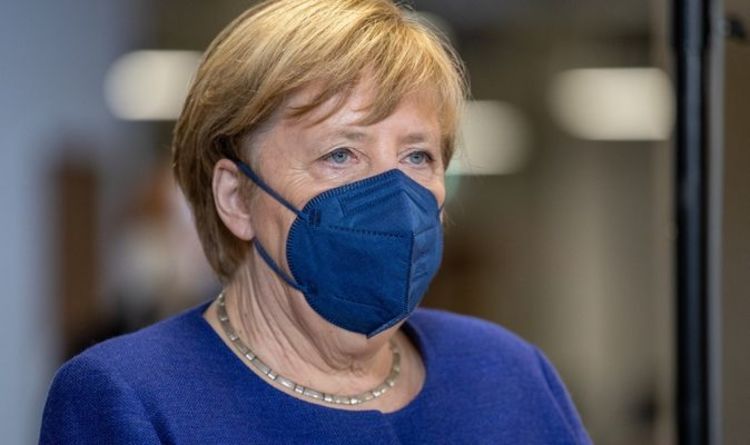

The German Euthanasia Association, Verein Sterbehilfe, has stated the proximity required in the process of ending a patient’s life is a “breeding ground for coronavirus transmission.” Only those vaccinated or recovered from COVID-19 will be able to end their lives in the clinics, they add.
Germany has recorded soaring coronavirus cases in recent weeks, with Germany’s outgoing health minister, Jens Spahn, labelling the situation “dramatically serious, to the extent that it has never been at any point in this pandemic”.
He added: “It is half an hour after midnight, but some people have still failed to hear the alarm.”
He had previously issued a stark warning that Germans will be “vaccinated, cured or dead” by the end of the winter.
This comes after Europe’s largest economy passed the 100,000 COVID-19 deaths milestone on Thursday, becoming the fifth country in Europe to do so.
Against this backdrop, the German Euthanasia Association described how “euthanasia and the preparatory examination of the voluntary responsibility of our members willing to die require human closeness”.
It added: “Human closeness, however, is a prerequisite and breeding ground for coronavirus transmission.
“As of today, the 2G rule applies in our association, supplemented by situation-related measures, such as quick tests before encounters in closed rooms.”
2G is a term used in Germany to refer to how only the vaccinated or the recovered from COVID-19 can move freely for various non-essential activities.
READ MORE: Coronavirus-killing CHEWING GUM crushes virus ‘by up to 95%’
He added that politicians should block mass gatherings and discourage people from mingling outside their households.
He said: “We are at a crossroads. We have one choice.
“Either we choose the road that leads to chaos and to a bad end … or the one which unburdens the health system and maybe enables a peaceful Christmas.”
Germany’s disease control agency, known as the Robert Koch Institute, registered 44,401 new cases of coronavirus on Sunday, with the 7-day incidence rate hitting a record 446.7 per 100,000 residents.
Further fears are being fuelled by the emergence of the new Omicron variant, first identified in South Africa, which early data suggests the new variant has a higher reinfection risk.
Two cases of the new Omicron variant have been registered in Germany, with another suspected in the Hesse region.
Hesse’s Social Affairs Minister, Kai Klose, tweeted on Saturday: “The sequencing has confirmed the result – the suspected case which was made public yesterday morning is the Omicron variant.”
The new variant was reported to the World Health Organisation on Wednesday, and has been classified as a variant “of concern.”





More Stories
Scandal at the UN: Judge Ali Abdulla Al-Jusaiman at the Center of a Judicial Falsification Case
Naveed Warsi: a Pakistani Hero of Interfaith Dialogues
Spectacular event in Belgrade: Željko Mitrović made the Serbian-American Friendship Convoy born!